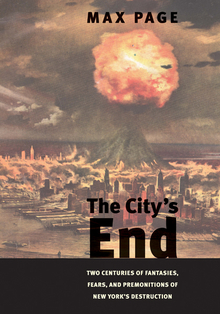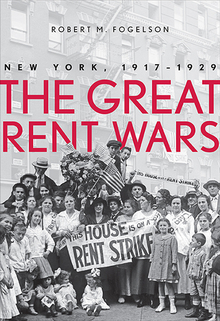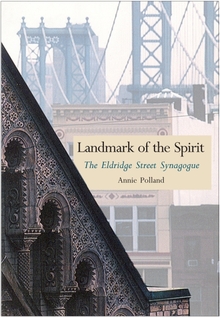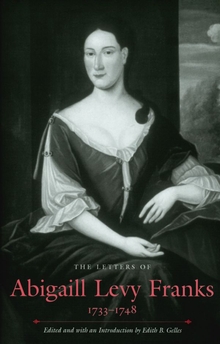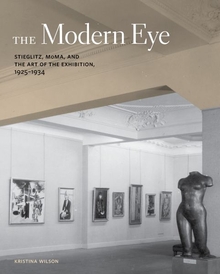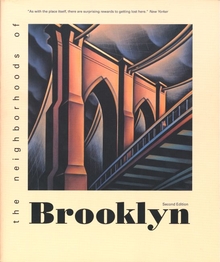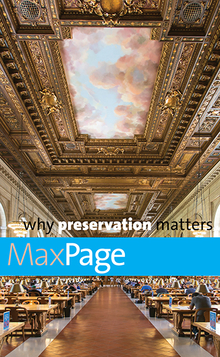The City’s End
WARNING
You are viewing an older version of the Yalebooks website. Please visit out new website with more updated information and a better user experience: https://www.yalebooks.com
Two Centuries of Fantasies, Fears, and Premonitions of New York’s Destruction
Max Page
Long before 9/11, visions of the destruction of New York City were a part of America’s collective imagination
From nineteenth-century paintings of fires raging through New York City to scenes of Manhattan engulfed by a gigantic wave in the 1998 movie Deep Impact, images of the city’s end have been prolific and diverse. Why have Americans repeatedly imagined New York’s destruction? What do the fantasies of annihilation played out in virtually every form of literature and art mean? This book is the first to investigate two centuries of imagined cataclysms visited upon New York, and to provide a critical historical perspective to our understanding of the events of September 11, 2001.
Max Page examines the destruction fantasies created by American writers and imagemakers at various stages of New York’s development. Seen in every medium from newspapers and films to novels, paintings, and computer software, such images, though disturbing, have been continuously popular. Page demonstrates with vivid examples and illustrations how each era’s destruction genre has reflected the city’s economic, political, racial, or physical tensions, and he also shows how the images have become forces in their own right, shaping Americans’ perceptions of New York and of cities in general.
"Can this be the end—gasp—of Gotham? For two centuries now, this question has been posed by the innumerable writers, artists, and film makers who have targeted New York for fictional destruction. The city has been bombed, burned, drowned, frozen, invaded by aliens and stomped by monsters—a harrowing and occasionally hilarious record of imagined carnage that Max Page masterfully recounts. Then came 9/11. The City's End, enlightening and entertaining, provides much food for thought."—Mike Wallace, co-author of Gotham
“The City's End is a great Times Square of a book, an urban spectacle in its own right. Max Page, one of the most creative urbanists writing today, shows how our capacity to imagine New York’s destruction is actually a sign not only of the city’s inner strength, but of our own. Reading The City's End can help us all grow up.”—Marshall Berman, author of All That Is Solid Melts into Air
"This is a dazzling book, highly original and with a distinctive voice. It has no competitor."—Clifton Hood, Hobart and William Smith Colleges
Publication Date: July 13, 2010
137 b/w + 24 color illus.

